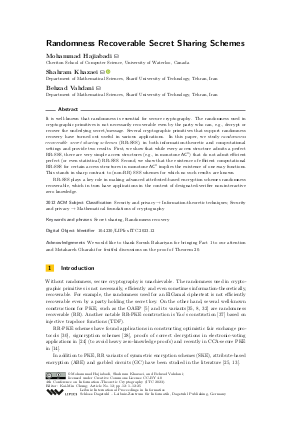LIPIcs.ITC.2023.12.pdf
- Filesize: 0.9 MB
- 25 pages

 Creative Commons Attribution 4.0 International license
Creative Commons Attribution 4.0 International license




Feedback for Dagstuhl Publishing